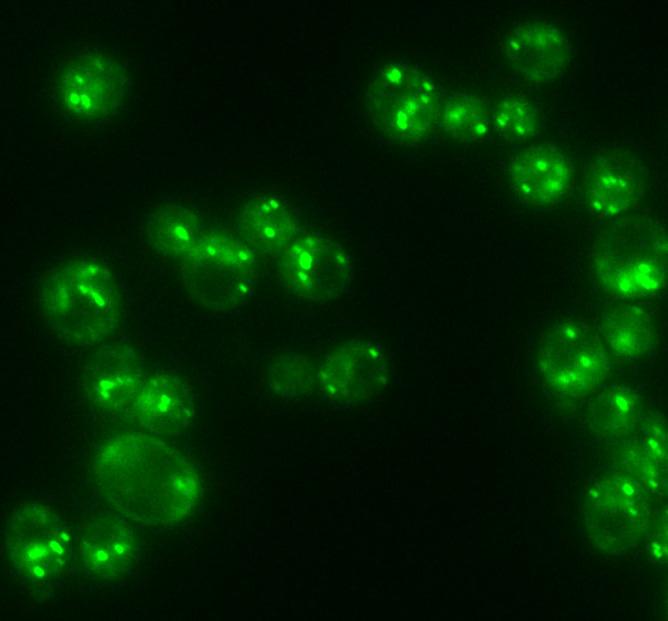
Fat is stored in lipid droplets (bright green spots) in yeast cells, which is analogous to how fat is stored in human tissue. Credit: Gil-Soo Han/Rutgers University-New Brunswick
A fat-regulating enzyme may play a key role in a number of diseases including obesity, diabetes and cancer.
Scientists from Rutgers University-New Brunswick have found that while controlling an enzyme–known as phosphatidic acid phosphatase– is crucial in the fight against obesity, removing it entirely might increase the risk of cancer, inflammation and other ailments.
“The goal of our lab is to understand how we can tweak and control this enzyme,” George Carman, Board of Governors professor in the Department of Food Science in the School of Environmental and Biological Sciences, said in a statement. “For years, we have been trying to find out how to fine-tune the enzyme’s activity so it’s not too active and creating too much fat but it’s active enough to keep the body healthy.”
The enzyme determines whether the body’s phosphatidic acid is used to create fat or to create the lipids in cell membranes.
The researchers used baker’s yeast as a model organism because it also contains the key enzyme, leading to accumulations of phosphatidic acid, with cells making far more membrane lipids than necessary.
“We have found that maybe a more critical role for the enzyme is to make sure that cells are not making too much membrane lipid,” Carman said. “If you make too much membrane lipid, you make too much membrane and the cells are permitted to grow uncontrollably, a condition characteristic of cancer.”
While the researchers have focused on understanding the enzyme’s structure and function, they will now turn to trying to better control it.
“The key take-home message is that things have to be balanced,” Carmen said. “To keep the balance between making storage fat and membrane lipid, you have to have balanced diet.”
The study was published in the Journal of Biological Chemistry




